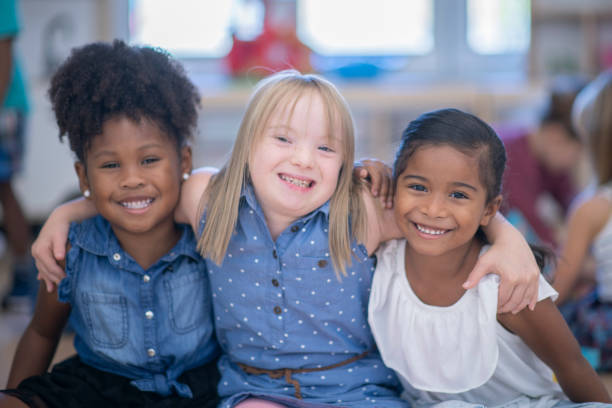Pre school
In our PreSchool program, the curriculum includes a project approach derived from children’s questions or special interests. The teacher plans a daily schedule that maximizes children’s acquisition of desired knowledge and skills through the effective use of time and materials. The children are offered opportunities to learn through play and through structured activities, individually and in groups. Each child’s social – emotional development is fostered through the development of friendships, self-regulation skills, empathy and the ability to resolve conflict in positive ways. Early literacy is supported through reading, learning letters and sounds, and immersion in a print rich environment. Classroom learning centers encourage exploration and discovery.
Let’s take a look at what a read-aloud looks like in our classroom and it very well could look the same in your home using these techniques!


In our PreSchool program, the curriculum includes a project approach derived from children’s questions or special interests. The teacher plans a daily schedule that maximizes children’s acquisition of desired knowledge and skills through the effective use of time and materials. The children are offered opportunities to learn through play and through structured activities, individually and in groups. Each child’s social – emotional development is fostered through the development of friendships, self-regulation skills, empathy and the ability to resolve conflict in positive ways. Early literacy is supported through reading, learning letters and sounds, and immersion in a print rich environment. Classroom learning centers encourage exploration and discovery.
Let’s take a look at what a read-aloud looks like in our classroom and it very well could look the same in your home using these techniques!
8 Ways to Support Literacy Skills Development
It’s never too early to nurture children’s development of language and literacy skills. Even at a very young age, experiencing different genres of books, hearing stories from the adults who care about them, and exploring books alone or with peers helps them learn how to listen to and understand language and how to share their thoughts, ideas, and feelings.
Below we highlight eight ways to support language and literacy skills development in your own early childhood classroom.
- Capture children’s interest before you read. Have children sitting on the edge of their seats before the story even begins! Before your next read-aloud, take a moment to get children interested by providing an exciting overview of the story they’re about to hear. Not sure what this looks like? Below, Vice Chair of the Board Kai-leé Berke provides a few examples so you can see this technique in action.
- Introduce vocabulary during a read-aloud. Select a few words to highlight and define for children before you begin the read-aloud. Choose words that are important to understanding the meaning of the story and then define the words as you read. You can define words during a read-aloud by pointing out part of an illustration that shows the meaning of a word, showing facial expressions or moving your body in a way that provides explanation, or giving a brief definition. Share the see-show-say strategy with families.
- See-show-say is an easy, 3-part strategy that you can share with families for conducting read-alouds at home. In the below video, Breeyn Mack demonstrates how adults can invite children to see, show, and say what they’re experiencing in the story.
- Highlight children’s favorite books. Highlighting children’s favorite books during read-aloud time is a great way to get them engaged and keep their attention. Encourage children to talk about their favorite books and share their recommendations with others. Keep sticky notes and pencils in the Library area so children can identify their favorite books. Ask them to write their name on the sticky note and then place it inside the book’s cover; then, at read-aloud time, you can point out that this book is Charlie or Lia’s favorite.
- Establish read-aloud routines. Young children thrive with consistent, predictable routines, so it’s important to establish regular times for reading. We recommend scheduling time for read-alouds at least twice a day.
- Read in small groups. To get the most literacy learning out of a read-aloud experience, make sure you take the time to read to children in small groups. Research shows that children who hear stories in small-group settings develop stronger comprehension skills, ask and answer more questions, and comment more on the text. So while you’re probably already reading aloud to large groups of children, try to find time for these small-group interactions, too!
- Support children who are learning two languages. To support dual-language learners, include books and recorded readings in children’s first languages and wordless books in your classroom book collection. Whenever you can, read the story in the child’s first language before reading in English.
- Make reading physically interactive by inviting children to hold the book and turn the pages, if they are physically able, or offering them a toy to hold while you’re reading. Focus their attention by pointing to and naming the things in the pictures. And be prepared to read the same books over and over again—very young children thrive on routine and repetition.



